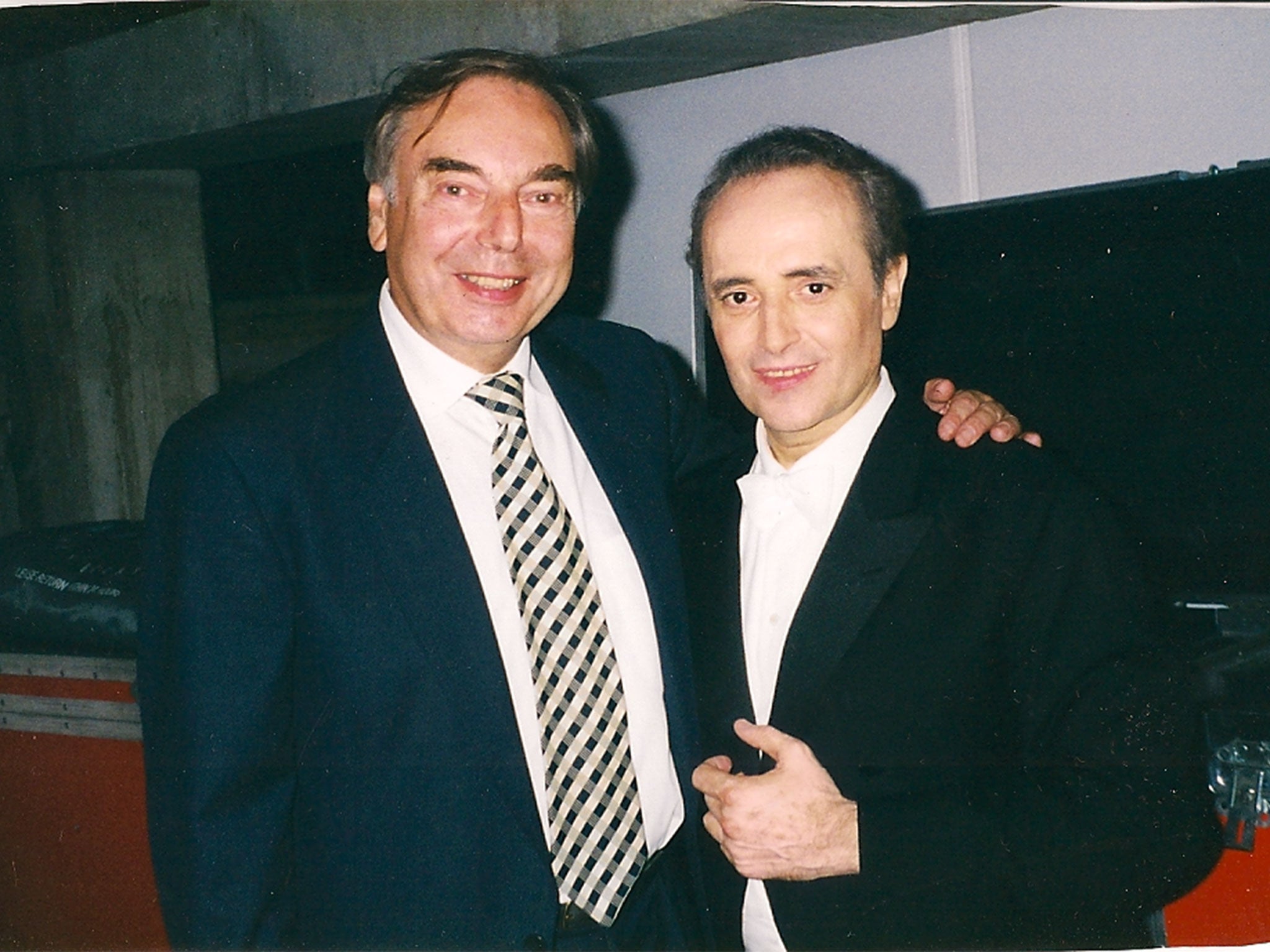Don Percival: Music industry all-rounder
Singer, musician and leading back-room figure who worked with David Bowie and Elton John

Don Percival was a leading back-room figure in British pop music. Starting out as a musician himself, he went on to work with many of the biggest names of the age, including David Bowie, Elton John, Status Quo and Rod Stewart.
After joining the Philips record company as an A& R director in 1969, one of the first artists he was assigned to work with was Bowie. At the time Bowie’s career had stalled and his lack of success had forced him to seek employment in other fields, including acting in TV commercials. In search of a new recording contract he had made a promotional film including nine songs, which his manager sent to Philips, who then signed him – with some caution– to a single album deal.
One of the songs was “Space Oddity”. With perfect timing, Percival arranged for the record to be released as a single five days before the launch of Apollo 11, the first manned moon landing. He visited Bowie at his home in Beckenham and told him he would quit the music business if the song was not a hit. The song made the top five in the British singles chart and Percival’s job was secure.
He rose to become Head of Music, TV and Film at Phonogram, as Philips became in 1972, taking in the Mercury, Vertigo and Fontana imprints. He was responsible for some imaginative promotional films with 10cc and others that paved the way for the music video. He formed close ties with Bill Holland, head of Universal/Warner, as they continued to provide artistes for prominent live entertainment, in particular for the Royal Variety Show.
After leaving Philips in 1980 he set up his own PR and music publishing companies. Among his clients were not only pop and jazz performers but also several of the word’s best-known opera singers including Jose Carreras, Jessye Norman and Luciano Pavarotti. Percival was noted for the easy rapport he enjoyed with his artists – he was far more than just another music industry “suit”. As a professional musician early in his career he had played bass and sung in jazz bands and in later years he composed the title and incidental music for BBC series including Fighter Pilots (1981-1983).
He also sang “One More Kiss, Dear” in Ridley Scott’s 1982 film Blade Runner, for which Vangelis wrote the music. His recording was originally intended as a demo for Demis Roussos to sing the song, but Vangelis was so pleased with Percival’s enchanting voice that it was retained in the film.
Donald John Percival was born in 1930 in Swansea, one of seven children and the son of two professional singers. He took up the double bass at the age of 14 and in 1947 moved to London, hoping to make a career as a professional musician. He was called up for National Service in 1948 and served in the RAF for 18 months before resuming his musical career, playing for a year in the first European resident band in Calcutta and mixing with Indian royalty and then in a ship’s orchestra for the P&O line.
Back in England he joined the Basil Kirchin Band on bass. In 1964 he had a breakthrough when Blake Edwards, in one of the early Pink Panther films, A Shot in The Dark, asked his band to play in the nudist colony and night club scenes: fame at last on the big screen, full exposure but no extra fees, just the film credits. He later became a member of the Barry Morgan Trio, which enjoyed a long residency in Mayfair’s fashionable Blue Angel Club, where the cabaret performers included Lance Percival, Kathy Kirby and Noel Harrison and through which he retained a lifelong friendship with Noel Harrison and David Frost.
In the 1960s he became a partner in Morgan Records, and although the label failed to produce any notable hits it provided valuable experience for his move to Phillips in 1969. The company operated across the musical spectrum, from rock to easy listening, and Percival worked with everyone from heavy rockers such as Thin Lizzy and Status Quo to MOR artists such as Harry Secombe, Peters and Lee and Demis Roussos.
He left Phonogram in 1980 when the company merged with Polydor Records to become Polygram. The following year he set up Don Percival Artistes Promotion; in addition to working with established artists he helped promote and develop the careers of promising new names, including Natalie Cole and Diana Krall, and he was also instrumental in launching Richard Clayderman’s UK career.
He developed a special relationship with the journalist and broadcaster Sir Michael Parkinson, after many years of arranging for prominent musical guests to appear on Parkinson’s chat show. The happiest moments of his life, however, were probably spent working with Jose Carreras on some of his many engagements round the world.
After his retirement from the music industry, from 2001 to 2006 Percival served as chairman of Collins Heritage, a business based in the Potteries that exported fine bone china to the Middle East. He was a freemason all his adult life and a keen sailor. He is survived by his wife Sophia and his two sons Christopher and Dimitri.
Donald John Percival, musician and music producer: born Swansea 2 October 1930; married Sophia (two sons); died Farnborough, Kent 25 September 2013.
Subscribe to Independent Premium to bookmark this article
Want to bookmark your favourite articles and stories to read or reference later? Start your Independent Premium subscription today.

Join our commenting forum
Join thought-provoking conversations, follow other Independent readers and see their replies